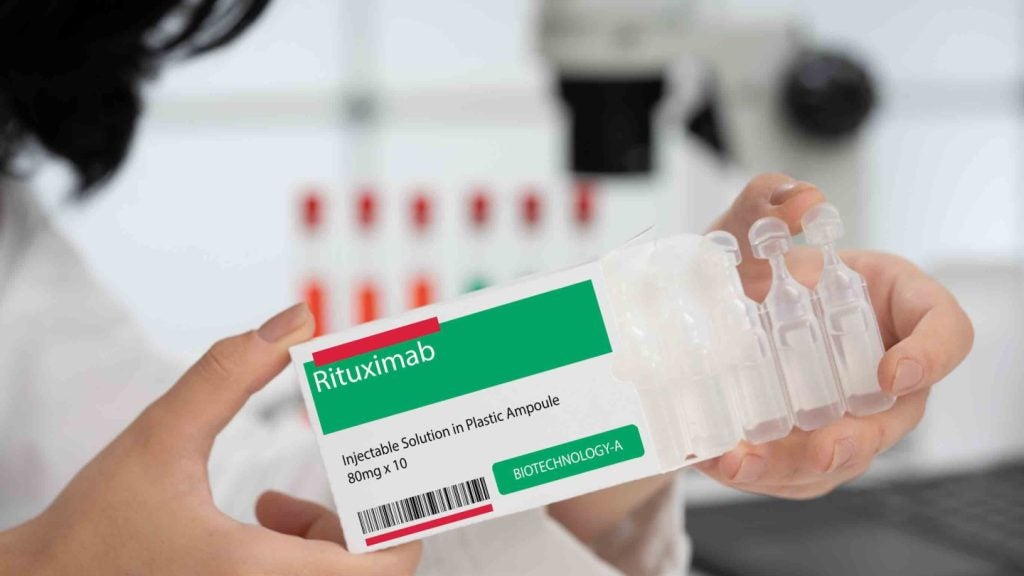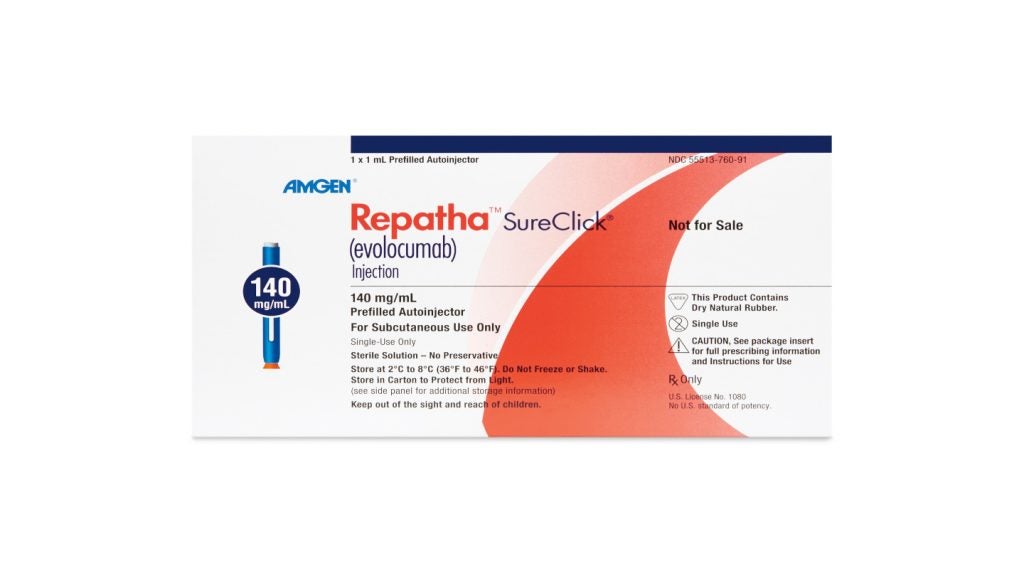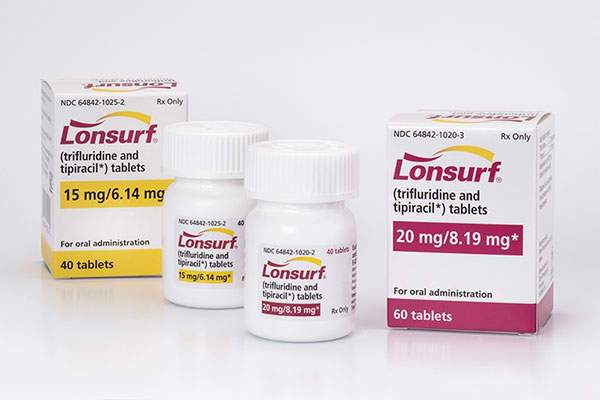Entyvio (vedolizumab) is a human monoclonal antibody indicated for treating adult patients with moderate to severe ulcerative colitis (UC) and those with moderate to severe Crohn’s disease (CD).
Developed by Takeda Pharmaceuticals, a pharmaceutical company based in Japan, vedolizumab is a biologic therapy that provides a choice of intravenous (IV) or subcutaneous (SC) route of administration for maintenance treatment of patients with moderate to severe UC.
Entyvio is available in 300mg strength in a single-dose vial for intravenous infusion. For subcutaneous injection, a 108mg/0.68ml solution is available in a single-dose prefilled syringe with a needle safety device and a single-dose prefilled pen.
Regulatory approvals for Entyvio
The US Food and Drug Administration (FDA) approved an SC route of administration of Entyvio for maintenance therapy in adults with moderate to severe UC, following induction therapy with Entyvio IV, in September 2023.
The SC formulation of Entyvio has also received marketing authorisation in the EU and more than 50 countries. Entyvio IV has marketing authorisation in more than 70 countries, including the US and EU.
The FDA is also reviewing a biologics license application for an investigational SC administration of Entyvio for the treatment of adults with moderately to severely active CD.
Entyvio’s latest approval by Health Canada in January 2021 made the drug available as a maintenance therapy for the treatment of both CD and UC in IV, as well as ready-to-use self-injectable SC formulations in Canada.
Takeda received initial approval for Entyvio from the FDA for the treatment of adult patients with moderately to severely active UC and CD in May 2014. The company also received its first marketing authorisation for Entyvio in Europe during the same month.
Adult ulcerative colitis and Crohn’s disease
UC, together with CD, comprise the two main forms of inflammatory bowel disease.
UC causes inflammation and ulcers in the inner lining of the large intestine, which includes the colon and the rectum. The disease leads to abdominal discomfort, diarrhoea, gastrointestinal bleeding, mild to severe bowel urgency, incontinence, rectal pain, fever, weight loss, and fatigue.
It is estimated that more than 750,000 people in the US alone are affected by UC.
CD is a UC-related condition that causes swelling and irritation to any part of the gastrointestinal tract and mainly affects the ileum. It has been diagnosed in an estimated half a million people in the US.
Entyvio’s mechanism of action
Entyvio contains a humanised monoclonal antibody that works as an antagonist to the α4β7 integrin. The drug binds to the α4β7 integrin, a mediator of gastrointestinal inflammation. Integrin receptors are proteins that function as mediators for cell-cell interactions.
The drug decreases inflammation in the gastrointestinal tract by blocking the entry of inflammation-stimulating lymphocytes.
Clinical trials on Entyvio
Takeda conducted two Phase II clinical trials on Entyvio to evaluate the drug’s safety and efficacy in the treatment of UC. The studies enrolled approximately 900 patients who had not responded adequately to corticosteroids, immunomodulators, or tumour necrosis factor (TNF) blocker medications. The subjects were observed through endoscopy for the purpose of evaluation.
Results demonstrated that patients treated with Entyvio achieved and maintained greater clinical response and a greater clinical remission, as well as achieved corticosteroid-free clinical remission when compared with placebo.
Meanwhile, Takeda conducted three clinical trials to establish the efficacy and safety of Entyvio in treating CD. The studies enrolled more than 1,500 patients who had failed to respond adequately to corticosteroids, immunomodulators, or TNF blocker medications.
Results again demonstrated that patients treated with Entyvio achieved greater clinical response, clinical remission, and corticosteroid-free clinical remission compared to placebo.
The FDA and EU approvals were based on the results obtained from a Phase III clinical trial programme known as GEMINI that involved four clinical studies conducted simultaneously by enrolling more than 2,700 patients with UC and CD across 40 countries.
Three of the four studies were randomised, double-blind, placebo-controlled trials, namely GEMINI I (UC Trials I and II), GEMINI II (CD Trials I and III), and GEMINI III (CD Trial II). GEMINI I, II, and III involved adult patients with moderate to severely active UC and CD, who had an inadequate response to immunomodulator therapy, loss of response, or intolerance to TNF blockers and corticosteroids, or were corticosteroid dependant.
The results demonstrated that approximately 52% of patients treated with Entyvio reported adverse reactions compared with 45% of those treated with placebo. Serious adverse reactions were reported in 7% of patients treated with Entyvio compared with 4% of placebo-treated patients.
The drug’s side effects were headache, nasopharyngitis, arthralgia, nausea, pyrexia, fatigue, upper respiratory tract infection, cough, bronchitis, influenza, rash, back pain, pruritus, sinusitis, pain in extremities, and oropharyngeal pain.
VISIBLE I clinical study
The FDA approval of Entyvio for the new SC route of administration was based on the positive outcomes from the VISIBLE 1 clinical study.
The trial was a Phase III, randomised, double-blinded, placebo-controlled, 52-week study for the evaluation of safety and efficacy of an SC formulation of Entyvio as a maintenance therapy in patients with moderately to severely active UC, who achieved clinical response at Week 6, following two doses of open-labelled vedolizumab IV therapy at Weeks 0 and 2.
A total of 162 patients who had previously failed to respond adequately to corticosteroids or experienced loss of response, or had intolerance to TNF blocker therapy were randomised at Week 6 in a 2:1 ratio to either Entyvio SC 108mg regimen or placebo by SC injection every two weeks.
The primary endpoint was the percentage of patients in clinical remission specified as a Mayo score of less than or equal to 2 and no individual subscore greater than 1 at Week 52.
A statistically significant 46% of patients who received Entyvio SC 108mg maintenance therapy achieved clinical remission compared to 14% of patients who received placebo.
The most common adverse reactions reported in the patients during the clinical trial were nasopharyngitis, headache, arthralgia, nausea, pyrexia, upper respiratory tract infection, fatigue, cough, bronchitis, influenza, back pain, rash, pruritus, sinusitis, oropharyngeal pain, and injection site reactions.










